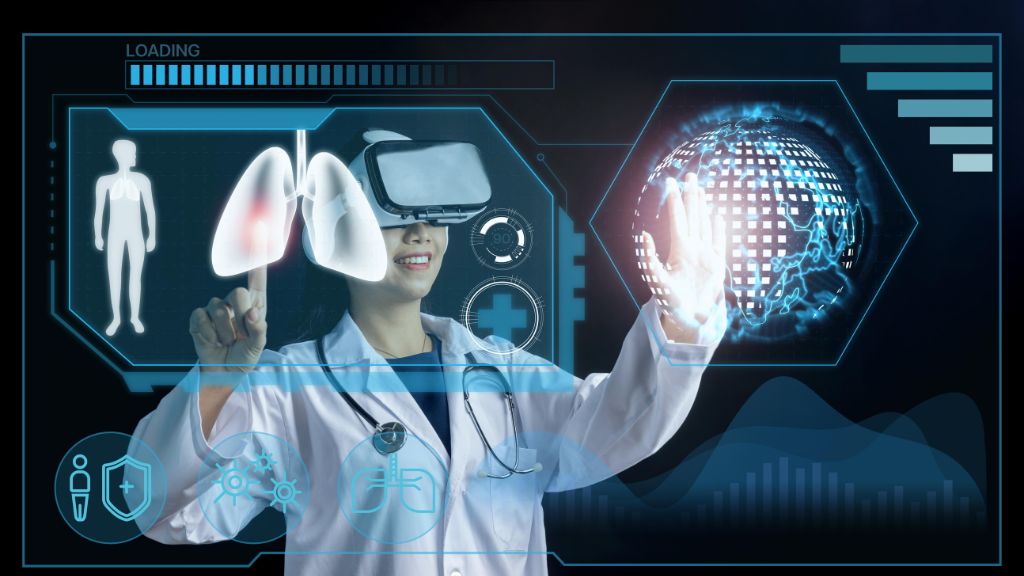The healthcare industry is experiencing a digital revolution, with artificial intelligence (AI) leading this transformation. Healthcare organizations—ranging from hospitals and clinics to telemedicine startups—are increasingly adopting AI-powered software to enhance patient care, streamline operations, and facilitate smarter decision-making.
By 2025, AI technologies will be essential for healthcare software developers who aim to provide innovative, efficient, and patient-centered solutions. In this blog, we will explore the top AI technologies that are shaping AI healthcare software development in 2025 and how these advancements are changing the way care is delivered.
Machine Learning (ML) for Predictive Analytics
Machine learning is a core AI technology widely adopted in healthcare software. It enables systems to analyze historical and real-time patient data to predict outcomes and provide actionable insights.
Applications in healthcare software:
- Predictive diagnosis: Early identification of chronic diseases like diabetes or cardiovascular conditions.
- Risk assessment: Categorizing patients based on their likelihood of complications or hospitalization.
- Treatment optimization: Suggesting personalized treatment plans based on past outcomes.
Impact in 2025:
ML-powered software allows healthcare providers to shift from reactive to proactive care, reducing readmissions and improving patient outcomes.
Natural Language Processing (NLP) for Clinical Insights
Natural Language Processing (NLP) allows healthcare software to understand and interpret unstructured data, such as clinical notes, medical reports, and research articles.
Applications include:
- Clinical documentation automation: Reducing administrative workload for clinicians.
- Medical record analysis: Extracting insights from Electronic Health Records (EHRs) to support decision-making.
- Patient communication: Powering AI chatbots to answer queries and provide guidance.
Impact in 2025:
NLP helps healthcare software deliver accurate insights, streamline workflows, and enhance patient-provider communication.
Computer Vision for Diagnostic Imaging
Computer vision enables AI-powered software to analyze medical images with precision and efficiency. It is transforming radiology, pathology, and diagnostic imaging.
Applications include:
- Disease detection: Identifying abnormalities such as tumors or fractures faster than traditional methods.
- Image segmentation: Highlighting key areas in scans for clinicians.
- Monitoring progression: Tracking disease development over time for better treatment planning.
Impact in 2025:
Computer vision reduces human error, accelerates diagnostics, and improves accuracy, making healthcare software more effective and reliable.
Deep Learning for Complex Data Analysis
Deep learning, a subset of machine learning, uses artificial neural networks to analyze large and complex datasets.
Applications include:
- Genomic analysis: Understanding genetic data for personalized medicine.
- Drug discovery: Accelerating identification of potential drug candidates.
- Predictive modeling: Forecasting disease progression or patient deterioration.
Impact in 2025:
Deep learning enables healthcare software to uncover insights from massive datasets, supporting precision medicine and proactive care.
AI Chatbots and Virtual Health Assistants
AI-powered chatbots and virtual assistants are becoming essential components of healthcare software, improving patient engagement and operational efficiency.
Applications include:
- Symptom assessment: Guiding patients based on their reported symptoms and medical history.
- Appointment management: Scheduling, rescheduling, and reminders.
- Medication adherence: Reminding patients to take medications on time.
Impact in 2025:
AI chatbots reduce clinician workload, enhance patient experience, and ensure continuous support outside clinical hours.
Reinforcement Learning for Personalized Treatment
Reinforcement learning (RL) enables AI systems to learn from outcomes and optimize decision-making over time.
Applications include:
- Dynamic treatment planning: Adjusting therapy based on patient response.
- Hospital operations: Optimizing staff allocation and patient flow.
- Behavioral interventions: Personalized coaching for chronic disease management.
Impact in 2025:
RL allows healthcare software to deliver adaptive, personalized care, enhancing outcomes and operational efficiency.
Explainable AI (XAI) for Transparent Decision-Making
Transparency is critical in healthcare. Explainable AI ensures that AI-driven decisions are understandable to clinicians and patients.
Applications include:
- Transparent diagnostics: Explaining AI recommendations for treatments or diagnoses.
- Regulatory compliance: Meeting ethical and legal standards for AI use.
- Patient trust: Making AI-driven decisions interpretable to end-users.
Impact in 2025:
XAI bridges the gap between complex AI models and human understanding, making healthcare software safer and more reliable.
AI-Powered Remote Patient Monitoring
Remote patient monitoring (RPM) is increasingly integrated with AI in healthcare software, allowing continuous tracking and analysis of patient health.
Applications include:
- Chronic disease management: Monitoring heart rate, glucose, or blood pressure in real-time.
- Early warning systems: Alerting clinicians about anomalies before conditions worsen.
- Predictive health insights: Identifying trends to prevent hospitalization or complications.
Impact in 2025:
AI-powered RPM reduces hospital readmissions, promotes preventive care, and empowers patients to manage their health effectively.
Generative AI for Healthcare Applications
Generative AI is emerging as a transformative technology in healthcare software, capable of creating synthetic data, medical reports, and even supporting drug discovery.
Applications include:
- Medical imaging enhancement: Creating high-resolution images from low-quality scans.
- Report generation: Automating structured medical reports from raw clinical data.
- Drug design: Assisting in generating novel drug molecules for research.
Impact in 2025:
Generative AI accelerates research, reduces administrative tasks, and enhances personalized healthcare software solutions.
Conclusion
By 2025, artificial intelligence (AI) will be a key component of healthcare software development, allowing for quicker, more intelligent, and more individualized care. These technologies, which range from computer vision, NLP, and generative AI to machine learning and deep learning, are revolutionizing healthcare software in the areas of patient care, diagnostics, administration, and research.


